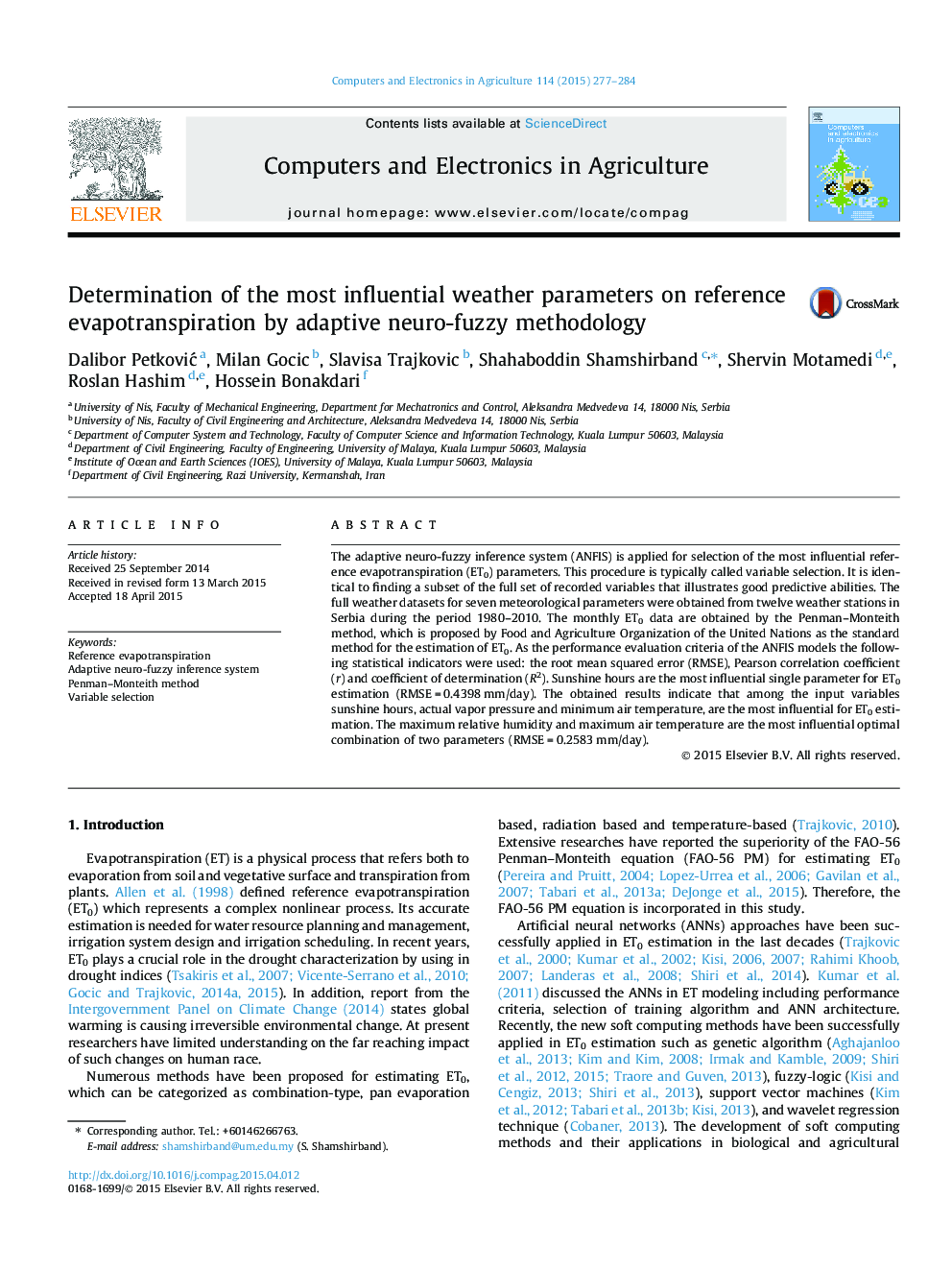| Article ID | Journal | Published Year | Pages | File Type |
|---|---|---|---|---|
| 6540752 | Computers and Electronics in Agriculture | 2015 | 8 Pages |
Abstract
The adaptive neuro-fuzzy inference system (ANFIS) is applied for selection of the most influential reference evapotranspiration (ET0) parameters. This procedure is typically called variable selection. It is identical to finding a subset of the full set of recorded variables that illustrates good predictive abilities. The full weather datasets for seven meteorological parameters were obtained from twelve weather stations in Serbia during the period 1980-2010. The monthly ET0 data are obtained by the Penman-Monteith method, which is proposed by Food and Agriculture Organization of the United Nations as the standard method for the estimation of ET0. As the performance evaluation criteria of the ANFIS models the following statistical indicators were used: the root mean squared error (RMSE), Pearson correlation coefficient (r) and coefficient of determination (R2). Sunshine hours are the most influential single parameter for ET0 estimation (RMSEÂ =Â 0.4398Â mm/day). The obtained results indicate that among the input variables sunshine hours, actual vapor pressure and minimum air temperature, are the most influential for ET0 estimation. The maximum relative humidity and maximum air temperature are the most influential optimal combination of two parameters (RMSEÂ =Â 0.2583Â mm/day).
Related Topics
Physical Sciences and Engineering
Computer Science
Computer Science Applications
Authors
Dalibor PetkoviÄ, Milan Gocic, Slavisa Trajkovic, Shahaboddin Shamshirband, Shervin Motamedi, Roslan Hashim, Hossein Bonakdari,
